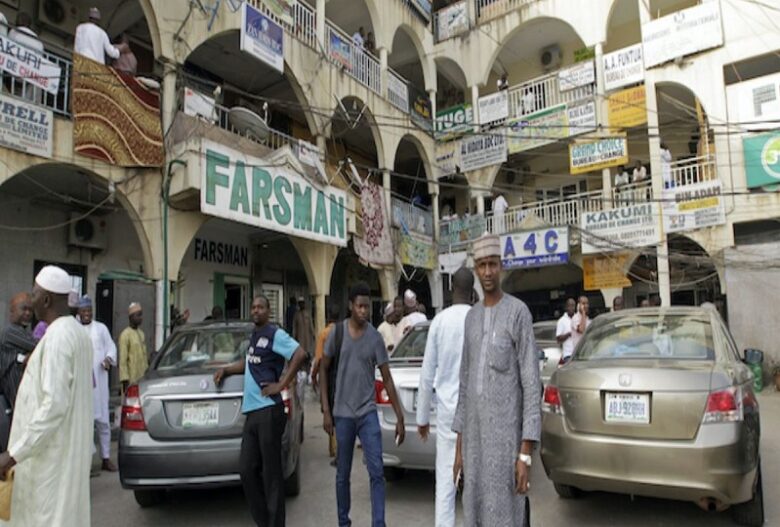The Central Bank of Nigeria (CBN) has introduced a fresh set of guidelines to keep Bureau De Change (BDCs) in check.
The Nigerian naira has recently hit an all-time low of N2,000 against the dollar due to the prevailing economic crisis in the country.
In response, the National Security Adviser, Mallam Nuhu Ribadu, instructed the Economic and Financial Crimes Commission (EFCC), Department of State Services (DSS), and other security agencies to crack down on currency speculators in the forex market. This has led to raids on BDCs nationwide and the arrest of some illegal operators.
In a statement on Friday titled; ‘Revised Regulatory and Supervisory Guidelines for Bureau De Change Operations in Nigeria’, the Financial Policy and Regulation Department of the CBN headed by Haruna B. Mustafa detailed what is now expected of BDCs in Nigeria.
The newly introduced guidelines categorise BDCs into two tiers with varying capital requirements. Tier 1 BDCs are now mandated to maintain a minimum capital requirement of N2 billion, while Tier 2 BDCs must adhere to a capital threshold of N500 million.
Previously, a minimum capital requirement from N35 million was set for all BDCs.
According to the Circular, Various Categories of financial institutions are prohibited from holding ownership stakes in Bureau De Change (BDCs), either directly or indirectly.
This includes commercial banks, merchant banks, non-interest banks, and payment service banks. Additionally, other financial institutions (OFIs), such as holding companies and payment service providers, are also barred from owning BDCs.
Furthermore, ineligible entities encompass non-governmental organisations (NGOs), employees of financial regulatory and supervisory agencies, government entities at all levels, public officials, and cooperative societies, among others.
Bureau De Change (BDCs) are authorised to engage in specific activities outlined by the Central Bank of Nigeria (CBN), including the buying and selling of foreign currencies, issuing prepaid cards, and serving as cash points for money transfer operators.
However, they are prohibited from accepting deposits, extending loans, trading in gold, or participating in capital market activities. Furthermore, CBN said BDC operators can not engage in street trading, maintenance of any type of account for the public, and opening or maintaining any account with any financial institution outside Nigeria.
They are also banned by the CBN from engaging in offshore business, financing political activities, selling FX on credit to customers and granting loans, as well as international inward transfers (except for operators that serve as cash-out points for International Money Transfer Operators).
BDCs are permitted to source forex from authorized dealers, travellers, hotels, embassies, and other approved channels as specified by the new regulatory guidelines.
Regarding the sale of foreign currencies, BDCs can sell forex for purposes such as travel, medical bills, and school fees, up to specified limits per customer annually.
They can also sell for the repurchase of unused naira from a non-resident from whom the BDC had sourced foreign currency in the course of the visit.
In the new guideline, at least 75 percent of the sales must be conducted through electronic transfers, while the remaining 25 percent can be in cash.
A beneficiary of BTA or PTA shall receive up to 25 percent of the foreign currency in cash, according to the CBN, and the remaining 75 percent shall be transferred to the customer electronically (to the customer’s Nigerian domiciliary account or prepaid card).
The Central Bank of Nigeria (CBN) stipulated that individuals or entities selling the equivalent of $10,000 or more to Bureau De Change (BDCs) must disclose the source of the foreign exchange and adhere to all Anti-Money Laundering/Combating the Financing of Terrorism/Counter Proliferation Financing (AML/CFT/CPF) regulations, as well as foreign exchange laws and regulations.
Customers are permitted to transfer foreign currencies from their personal domiciliary accounts held with Nigerian banks to BDCs.
All digital or transfer transactions for purchasing foreign currencies will be credited to the BDC’s Nigerian domiciliary account, with payments made to customers’ Naira accounts. For non-resident customers, whether Nigerian or foreign, a BDC may issue prepaid NGN cards, subject to relevant maximum credit and cumulative limits in accordance with Know Your Customer (KYC) requirements.
In the case of non-resident customers, BDCs are instructed to issue prepaid Naira cards, subject to applicable maximum credit and cumulative limits as per KYC requirements.
Beneficiaries of BTA or PTA of $500 or less can receive the forex in cash. In the same vein, the financial regulator said payments to customers for cash purchases of forex of the equivalent of $500 and below may be made in cash.
Strengthening BDC sector and promoting a healthier FX market
The CBN’s decision aligns with a broader strategy to strengthen the BDC sector and promote a healthier foreign exchange market in Nigeria.
By increasing the capital requirement to N2 billion, the CBN ensures that BDCs have sufficient financial capacity. This step promotes sector stability and reduces the risk of insolvency.
The higher license fees serve as a quality control mechanism. BDCs meeting the new capital requirement demonstrate commitment and risk management ability. It encourages serious players while potentially dissuading ill-prepared entrants.
Nigeria’s foreign exchange market faces speculation and arbitrage challenges. The stricter requirements aim to curb speculative activities, fostering a more orderly market.
Ownership restrictions prevent BDCs from having ties with banks, government agencies, or NGOs. This measure aims to reduce money laundering risk and enhance transparency.
A well-regulated BDC sector inspires confidence among investors and users. Adequately capitalised BDCs complying with regulations encourage increased participation and trust.
While the immediate impact may seem restrictive, a stronger BDC sector contributes to a more stable exchange rate, crucial for economic growth. It aligns with the government’s efforts to manage the naira’s value.









Got a Question?
Find us on Socials or Contact us and we’ll get back to you as soon as possible.